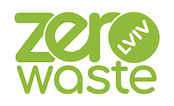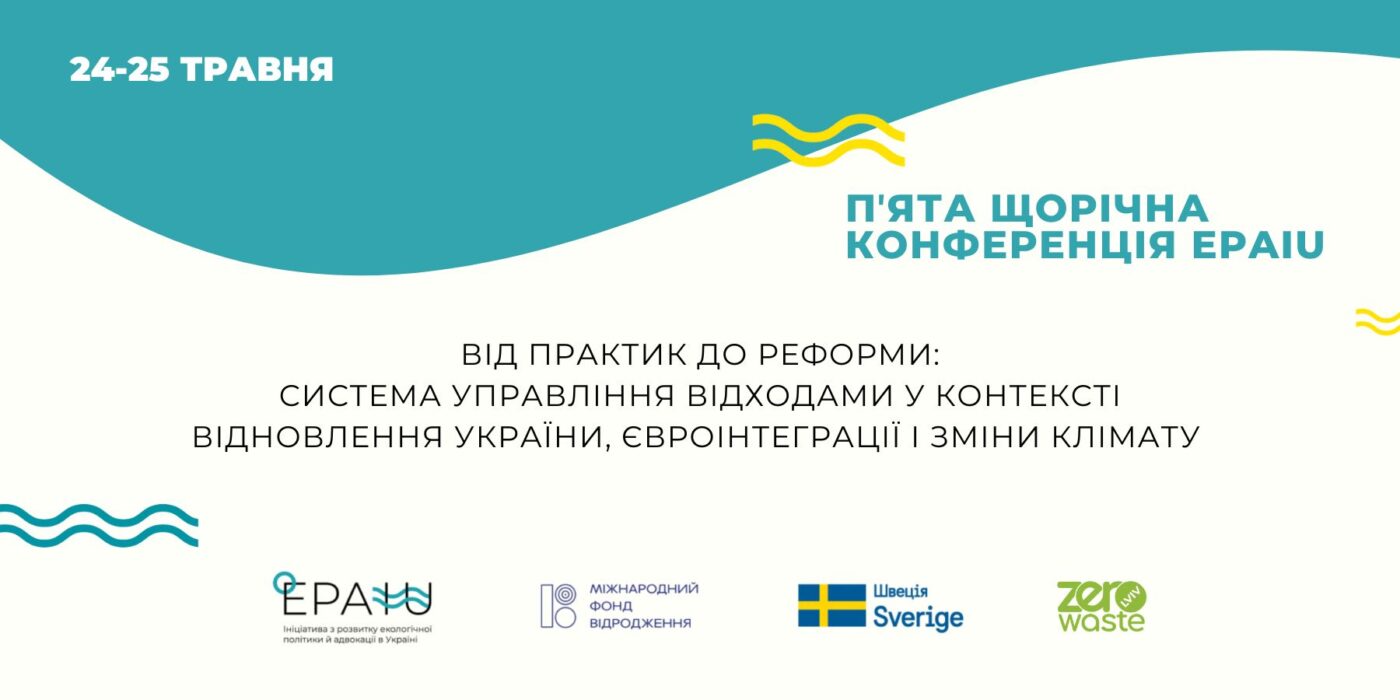On May 24-25, the fifth annual EPAIU conference will be held in the Lviv region. This year’s theme is “From Practices to Reform: The Waste Management System in the Context of Ukraine’s Recovery, European Integration, and Climate Change.” Experts from Ukraine and Europe are invited to participate. The event will be held in a hybrid format with the online broadcast available for all interested parties.
The event will be held under the auspices of the Environmental Policy and Advocacy Initiative for Ukraine (EPAIU)*, which is implemented by the International Renaissance Foundation with the support of the Swedish government. The partner of the conference is the Zero Waste Lviv NGO. The topics for discussion include:
- Waste management reform in Ukraine in the context of recovery and the European Green Deal.
- Industry legislation in the waste management sphere.
- NGOs’ practices in waste management.
- War waste: NGOs’ practices in solving the problem.
- Separate collection and processing of organic waste.
- Waste management in the context of climate change.
“Waste management in Ukraine has for a long time now required reforms that are systematic and oriented towards solving real problems. Old landfills are regulated by outdated standards and require significant resources for maintenance. Together with the spontaneous landfills they do not solve the waste problem but cause pollution and a decline in the quality of life of the people living nearby. The full-scale invasion and its consequences, obviously, only increased the amount of waste, adding ammunition fragments, demolished houses, construction debris, and many other things to the list. All this is taken to landfills until better times. The waste management system needs to be changed, and it needs to be changed now — in ways that will involve the public and focus on European standards and people’s needs,” commented Tetyana Kukharenko, head of the EPAIU Eco-initiative of the International Renaissance Foundation.
The goals of this year’s EPAIU conference are:
- strengthening the voice of NGOs striving to make the waste management system in Ukraine more effective and efficient, especially in the context of post-war recovery and European integration;
- emphasizing the importance of consistency in the field of waste management in communities and at the national level on account of the significant impact waste management has on climate;
- highlighting environmentally friendly waste management practices in other countries that could be applied in Ukraine, and drawing the red lines that Ukraine cannot cross;
- promoting effective practices and expertise of NGOs for the promotion of environmentalism among the public.
“With the onset of a full-scale invasion, we all faced unexpected and complex environmental challenges. Among them — a huge amount of single-use plastic waste, humanitarian aid waste, medical waste, etc. With the support of the EPAIU initiative, we are conducting research projects and looking for solutions. As for climate change, the zero waste strategy is an important tool for reducing greenhouse gas emissions, particularly methane, and in some cases, it can help to adapt to these changes. And for Ukraine, it is also very important in the context of reducing dependence on fossil fuels. We will be happy to present the cases of various non-governmental organizations and discuss the progress of the waste management reform in an expert environment in order to find systemic solutions to complex problems,” said Iryna Myronova, executive director of the Zero Waste Lviv NGO.
The online broadcast of the conference will be available on the Facebook pages of the International Renaissance Foundation and the Zero Waste Lviv NGO, as well as on the event page.
* The Environmental Policy and Advocacy Initiative for Ukraine (EPAIU) has been implemented by the International Renaissance Foundation (IRF) since 2019 with the financial support of Sweden. The purpose of the Initiative is to promote the sustainable development of NGOs — institutionally capable, with good management, accountable, and recognized in the environmental community — who will be able to contribute to reforms in Ukraine through the implementation of environmental policies and advocating for the protection of the environment.


 UA
UA